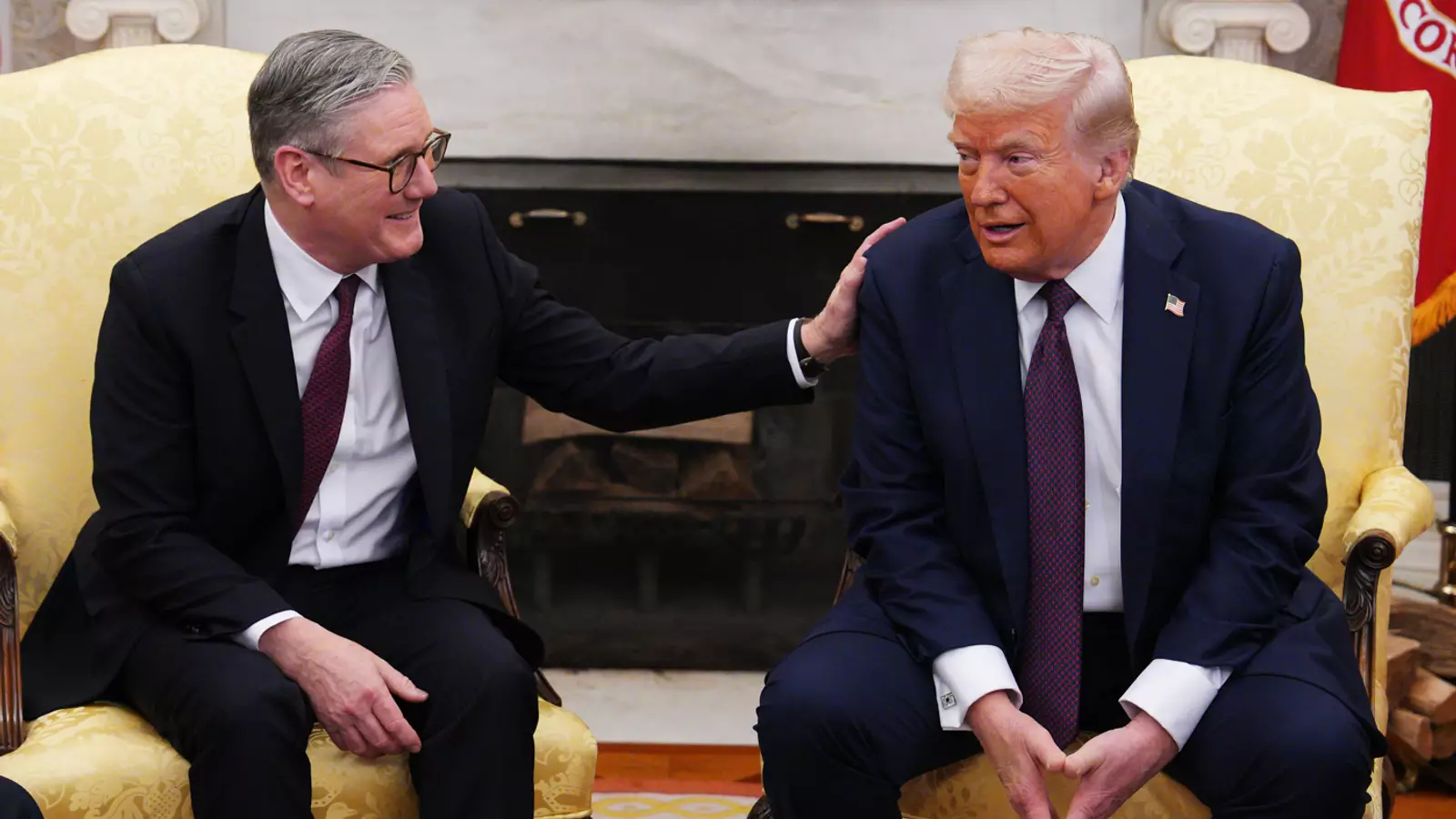The international trade arena is currently a cauldron bubbling with uncertainty, exacerbated by impending tariffs that threaten to reshuffle the balance of economic relations, particularly between the UK and the US. As Sir Keir Starmer notes, the trade discussions are “well advanced,” signaling that the UK government is working diligently to forge a deal that serves national interests. It’s commendable that there is an earnest effort to engage diplomatically rather than react rashly; however, this calm collectedness mustn’t lull us into a false sense of security. The situation requires not just a prudent response but a proactive strategy that takes into account the shifting sands of global economics.
The Dangers of a Knee-Jerk Reaction
Starmer’s rejection of a “knee-jerk” response to potential tariffs is notable. Such reactions, often fueled by impulsive emotions rather than reasoned thought, can lead countries down a treacherous path of economic retaliation, ultimately causing more harm than good. Trade wars can spiral out of control quickly, disrupting not only the local economy but also affecting global markets. The prospect of a “trade war” is not merely a political buzzword; it’s a reality that could potentially devastate the livelihoods of countless workers in both nations. The challenge lies in crafting a response that balances assertiveness with diplomatic finesse.
The President and His Liberation Day
Meanwhile, President Trump, with his characteristic bravado, has dubbed the day of the tariff announcement “Liberation Day.” This moniker, ostensibly aimed at rallying domestic support, belies the gravity of the situation. Tariffs are taxes that consumers will ultimately bear, leading to higher prices and diminished purchasing power. Describing them in liberating terms reveals an alarming disconnect between political rhetoric and economic realities. While he claims to champion the American worker, one must ponder: at what cost? Elevated tariffs harm not just foreign competitors but intricately tie themselves to the American economy’s health.
Potential Economic Fallout
Considering the economic ramifications, the UK’s Office for Budget Responsibility (OBR) warns of a potential 1% contraction in the economy should tariffs be implemented across the board. Such forecasts are not merely numbers on a balance sheet; they translate into real-life ramifications: diminished public services, potential tax increases, and a slowing job market. When political leaders speak of economic growth, they must keep a keen eye on how policy decisions can have ripple effects throughout society. The broader consequences of tariffs may render the initial political gains hollow.
Markets React: A Measure of Anxiety
Recent fluctuations in global markets underscore the anxiety precipitated by the uncertainty surrounding these tariff discussions. The UK’s FTSE 100, reflecting a dip indicative of investor trepidation, shows how economic indicators can serve as barometers of confidence. Investors do not merely react to present conditions; they speculate about future policies and their consequences. Stability is vital for growth, yet uncertainty breeds hesitation. If UK and US trade relations deteriorate, we may see not just immediate losses but long-term ramifications that could handicap economic recovery.
The Need for Strategic Leadership
The role of leadership in navigating this landscape cannot be overstated. Sir Keir Starmer’s insistence on a reasoned approach is crucial and warrants support, but it must also translate into tangible actions that address the underlying issues at hand. The UK must leverage its position not just as a negotiator but as a strategic player in global commerce. Building alliances, fostering innovation, and investing in local industries should become cornerstones of policy, ensuring that the country is not merely reacting but actively shaping its future.
In a world where the tides of trade can shift with a presidential tweet, it becomes clear that a calm and collected approach is paramount. Yet, this must be coupled with a call to action that empowers both governments and citizens to advocate for economic policies that prioritize growth, sustainability, and resilience in the face of uncertainty.

